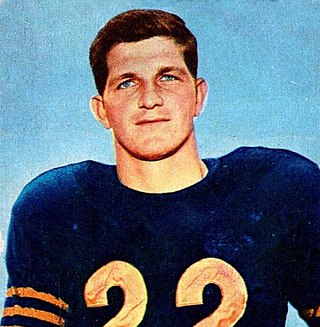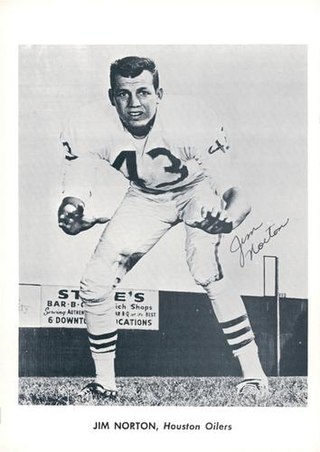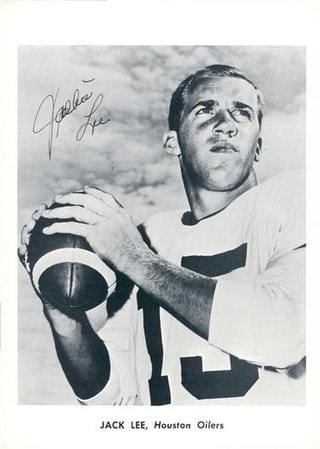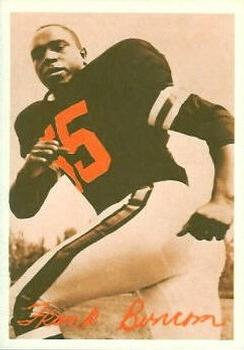
Super Bowl XII was an American football game between the National Football Conference (NFC) champion Dallas Cowboys and the American Football Conference (AFC) champion Denver Broncos to decide the National Football League (NFL) champion for the 1977 season. The Cowboys defeated the Broncos 27–10 to win their second Super Bowl. The game was played on January 15, 1978, at the Louisiana Superdome in New Orleans. This was the first Super Bowl in a domed stadium, and the first time that the game was played in prime time in the Eastern United States.

Super Bowl XXII was an American football game between the National Football Conference (NFC) champion Washington Redskins and American Football Conference (AFC) champion Denver Broncos to decide the National Football League (NFL) champion for the 1987 season. The Redskins defeated the Broncos by the score of 42–10, winning their second Super Bowl. The game was played on January 31, 1988, at Jack Murphy Stadium in San Diego, California, which was the first time that the Super Bowl was played there. It was the second consecutive Super Bowl loss for the Broncos, who had lost to the New York Giants in the Super Bowl the year before.

Super Bowl XXIV was an American football game between the National Football Conference (NFC) champion San Francisco 49ers and the American Football Conference (AFC) champion Denver Broncos to decide the National Football League (NFL) champion for the 1989 season. The game was played on January 28, 1990, at the Louisiana Superdome in New Orleans, Louisiana. The 49ers defeated the Broncos by the score of 55–10, winning their second consecutive Super Bowl, and then-tying the Pittsburgh Steelers with four Super Bowl victories. San Francisco also became the first team to win back-to-back Super Bowls with two different head coaches; rookie head coach George Seifert took over after Bill Walsh retired following the previous season's Super Bowl.
John Willard Hadl was an American football quarterback who played in the American Football League (AFL) and National Football League (NFL) for 16 years. He won an AFL championship with the San Diego Chargers in 1963. Hadl was named an AFL All-Star four times and was selected to two Pro Bowls. He was inducted into the Chargers Hall of Fame.

George Frederick Blanda was an American football quarterback and placekicker who played in the American Football League (AFL) and National Football League (NFL). Blanda played 26 seasons of professional football, the most in the sport's history, and had scored more points than anyone in history at the time of his retirement.

James Charles Norton was an American professional football safety and punter who played for the Houston Oilers of the American Football League (AFL). An original member of the Oilers franchise, he played in their first nine seasons from 1960 to 1968. Norton was an AFL All-Star for three seasons and holds the league's record for career interceptions. His jersey No. 43 was the first of eight retired by the Oilers/Titans franchise.

Larry Craig Morton is an American former professional football player who was a quarterback in the National Football League (NFL) for 18 seasons, primarily with the Dallas Cowboys and Denver Broncos. He played college football for the California Golden Bears, receiving All-American honors, and was selected by the Cowboys fifth overall in the 1965 NFL Draft. Following nine seasons with the Cowboys, a quarterback controversy with Roger Staubach led to Morton joining the New York Giants for three seasons. He spent his final six seasons as a member of the Broncos, winning NFL Comeback Player of the Year and AFC Offensive Player of the Year in 1977.
In each year of its ten-year existence (1960–1969), numerous sports-news services named their choice for the American Football League's best first-year player. UPI selected a rookie for each of the ten seasons, while the Associated Press did selections from 1961 to 1966, which ended up with the same selections that UPI made. In 1967, AP instead selected Offensive and Defensive Rookie of the Years for the AFL, with the offensive choices matching the UPI selection.

Francis Joseph Tripucka was an American football quarterback who played professionally for 15 seasons. He spent four seasons in the National Football League (NFL), eight in the Canadian Football League (CFL), and four in American Football League (AFL). Tripucka achieved his greatest success as the inaugural quarterback for the AFL's Denver Broncos, who he was a member of from 1960 to 1963. During Denver's inaugural year, Tripucka became the first NFL / AFL quarterback to throw for 3,000 yards in a season. He received All-Star honors when leading the league in yards in 1962. He was inducted to the Broncos Ring of Fame in 1986. Tripucka has the lowest career Passer Rating in NFL history, minimum 1500 passing attempts, with a career rating of 52.2.

Jack Ross Lee was an American quarterback who played professional football in the American Football League (AFL) for all ten of its seasons (1960–1969).
Peter Adrian Liske was an American football quarterback, star quarterback with Calgary Stampeders in the late-60s and later a university athletics administrator.
Stephen Michael Tensi was an American professional football player who was a quarterback in the American Football League (AFL) and the National Football League (NFL). He played college football for the Florida State Seminoles. He played professionally for the San Diego Chargers (1965–1966) and the Denver Broncos (1967–1970).

The 1966 Season was the 7th season for the San Diego Chargers as a professional American Football League (AFL) franchise; the team failed to improve on their 9–2–3 record from 1965. In the team's final season at Balboa Stadium, the Chargers went 7–6–1 and finished in third place in the AFL West Division. They would move to San Diego Stadium for the following season. It was the first season to feature an AFL-NFL World Championship Game, now known as the Super Bowl. San Diego began the season among the favorites to represent the AFL in the historic game, but faded after a 4–0 start, winning only three more times in the remaining ten games.

The 1965 San Diego Chargers season was their sixth as a professional AFL franchise; the team improved on their 8–5–1 record in 1964. Head Coach Sid Gillman led the Chargers to their fifth AFL West title with a 9–2–3 record, before losing the AFL Championship Game to the Buffalo Bills for the second consecutive season. It would prove to be the Chargers' last post-season appearance until 1979.

The 1964 San Diego Chargers season was their fifth as a professional AFL franchise; the team failed to repeat as AFL champions after winning the championship in 1963 with a record of 11–3, and finished at 8–5–1. San Diego struggled at the start and finish of the season, but a six-game winning streak in the middle proved to be enough to win the AFL West, in a league where the two strongest teams were in the Eastern division.

The 1963 San Diego Chargers season was the team's fourth in the American Football League. The team had gone 4–10 in 1962 but rebounded with an 11–3 record, winning the AFL West by one game over the Oakland Raiders, who were coached by former Chargers assistant Al Davis. San Diego scored the most points in the league and conceded the fewest. Their offense, led by veteran quarterback Tobin Rote, and featuring future Hall of Fame receiver Lance Alworth, gained more yards than any other team; Rote and Alworth were each named the league MVP, by the Associated Press and UPI, respectively.

The 1962 San Diego Chargers season was the club's third in the American Football League. San Diego had won the AFL West with a 12–2 record in 1961, but slipped to 4–10, losing eight of their final nine games after a 3–2 start. It was their worst record to date; this would be the only time the Chargers would endure a losing season during their 10 years in the AFL.

The 1961 San Diego Chargers season was the team's second in the American Football League. Following a move from Los Angeles, it was the Chargers' first season in San Diego, where the team remained until returning to Los Angeles in 2017.

The 1960 Los Angeles Chargers season was the team's inaugural season and also the inaugural season of the American Football League (AFL). Head coach Sid Gillman led the Chargers to the AFL Western Division title with a 10–4 record, winning eight games out of nine after a 2–3 start, and qualifying to play the Houston Oilers in the AFL championship game.
The Broncos–Chiefs rivalry is a rivalry between the Denver Broncos and Kansas City Chiefs in the National Football League's AFC West division. Since the American Football League was established in 1960, the Broncos and the Chiefs have shared the same division, first being the AFL Western Conference, and since the AFL–NFL merger, the AFC West. For years, the rivalry has featured two of the best home-field advantages in the league. CBS ranked this rivalry as the No. 4 NFL rivalry of the 1990s in 2020. The Chiefs and the Broncos are the farthest teams from a division rival, and the Broncos are the farthest from any other team at all.














